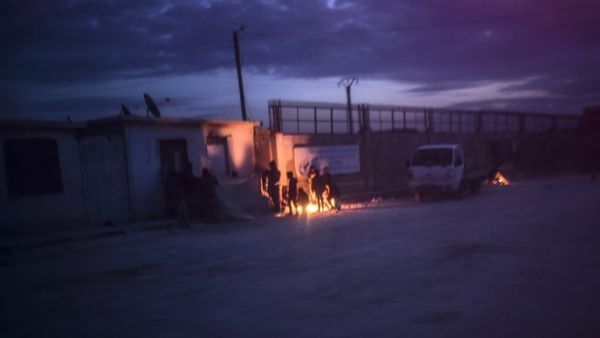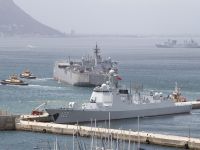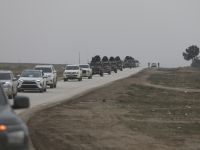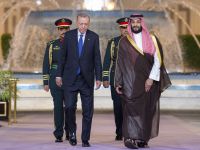This week was full of omens that Syria in its already fractured and suffering condition should look forward to more misery. This is due to the actions of Syrians as well as foreign powers, amidst slow-moving negotiations for cease-fires and a future political transition. The most intriguing sign of things to come was the official announcement by Saudi Arabia that it is willing to provide ground forces to fight Daesh (ISIS) in Syria, if the anti-Daesh countries that will meet in Brussels this month agree on a coordinated ground-and-air strategy.
The possible Saudi military move on the ground is doubly intriguing because it comes at a time when the United States has already increased the number of its special operations forces operating against Daesh in Iraq (and probably also in Syria), while some signs suggest that Turkey may be preparing to make a ground incursion in northern Syria. Foreign land forces fighting inside Syria would be a very significant development in the battle against Daesh. Yet this also raises important questions about the consequences of such action, questions that typically are neither asked nor answered by any government before it undertakes military action inside an Arab country.
Saudi Arabia’s potential ground action in Syria is important if it reflects a willingness among major regional powers to do what is needed to break up Daesh’s territorial base in northern Syria and Iraq. Every politician or soldier who comments on the challenge of defeating Daesh correctly notes that air power alone will not do the job, as the past 19 months have proven. Daesh and Al-Qaeda keep to expand their territorial reach and footholds in other countries, in direct parallel with American-led aerial military attacks against them. The last 19 months also show that when combined aerial and ground forces attack Daesh, they win and force it to retreat, as half a dozen such cases in Syria and Iraq confirm.
So the prospect of Saudi Arabian troops in Syria signals three critical things: the possibility of a genuinely united and coordinated international military strategy to defeat Daesh using all available means, Arab and other regional powers’ willingness to fight on the ground in this battle, and the likelihood of other Arab states joining a multinational force that includes Saudi troops.
It remains unclear, though, if such a Saudi move would activate the multinational, Arab-Islamic, unified force that was announced three months ago, whose mission is to fight against terrorism and extremism in the Middle East. That announcement seems not to have been followed up by practical measures, just as an Arab League announcement nearly a year ago to create an Egyptian-led multinational force for a similar purpose was never actualized.
Saudi, Turkish, American, or other foreign troops in Syria also should ring an alarm bell. Whatever may be its motive or context, any Saudi ground action inside Syria must be seen in the wake of the last nine months of Saudi-led warfare in Yemen. That war has reached something of a stalemate, with neither side achieving clear victory, but both sides able to say they fought to protect their interests and assert their principles. The Yemeni people have suffered mightily, as a majority today survives only on international relief aid. It is likely that serious efforts will now be made to find a diplomatic solution to end the Yemen war in a manner that allows all interested parties to go back to the negotiating table to agree on a realistic mechanism to govern Yemen. A Saudi-led Arab effort to fight against Daesh could have positive consequences if it is configured in a realistic manner that accurately addresses the causes of the dangers we face in this region. It must also be accompanied by solutions to these dangers, that give us hope that the Arab world might look forward to a new era of stability, growth, justice and equity in the lives of all citizens. Such a sensible approach is rarely applied in wars within Arab states, whether waged by local or foreign powers. Any new militarism inside Syria and Iraq must be considered against the legacy of postwar chaos and national fragmentation in half a dozen Arab states, such as Syria, Somalia, Iraq, Libya and Yemen, where wars have allowed militants and terrorists to set up shop and expand in the region.War is clearly necessary to defeat Daesh, but such a war should be intelligently planned so that it removes the immediate threat but also offers realistic postwar ideas to stabilize Syria and do what no Arab or foreign power has done in this region: seriously tackle the underlying drivers of militancy, ideological extremism and terrorism, namely state autocracy, corruption, disparities, police state brutality, and regular invasions by foreign armies.
By Rami G. Khouri








